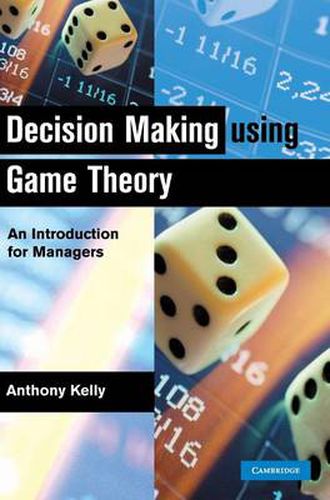Readings Newsletter
Become a Readings Member to make your shopping experience even easier.
Sign in or sign up for free!
You’re not far away from qualifying for FREE standard shipping within Australia
You’ve qualified for FREE standard shipping within Australia
The cart is loading…






Game theory is a key element in most decision making processes involving two or more people or organizations. This book explains how game theory can predict the outcome of complex decision making processes, and how it can help to improve negotiation and decision-making skills. It is grounded in well-established theory, yet the wide-ranging international examples used to illustrate its application offer a fresh approach to what is becoming an essential weapon in the armory of the informed manager. The book is accessibly written, explaining in simple terms the underlying mathematics behind games of skill. It analyzes more sophisticated topics such as zero-sum games, mixed-motive games, and multi-person games, coalitions and power. Clear examples and helpful diagrams are used throughout, and the mathematics is kept to a minimum. Written for managers, students and decision-makers in every field.
$9.00 standard shipping within Australia
FREE standard shipping within Australia for orders over $100.00
Express & International shipping calculated at checkout
Game theory is a key element in most decision making processes involving two or more people or organizations. This book explains how game theory can predict the outcome of complex decision making processes, and how it can help to improve negotiation and decision-making skills. It is grounded in well-established theory, yet the wide-ranging international examples used to illustrate its application offer a fresh approach to what is becoming an essential weapon in the armory of the informed manager. The book is accessibly written, explaining in simple terms the underlying mathematics behind games of skill. It analyzes more sophisticated topics such as zero-sum games, mixed-motive games, and multi-person games, coalitions and power. Clear examples and helpful diagrams are used throughout, and the mathematics is kept to a minimum. Written for managers, students and decision-makers in every field.